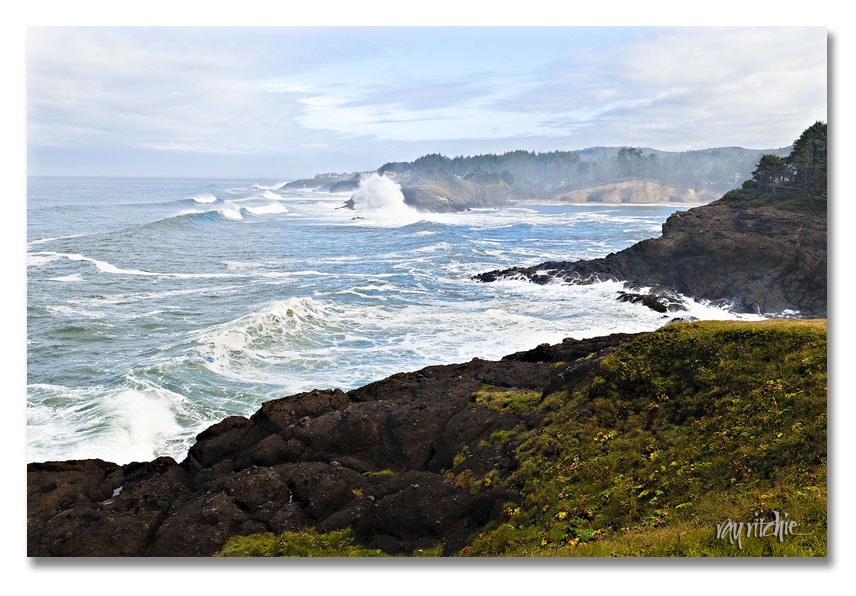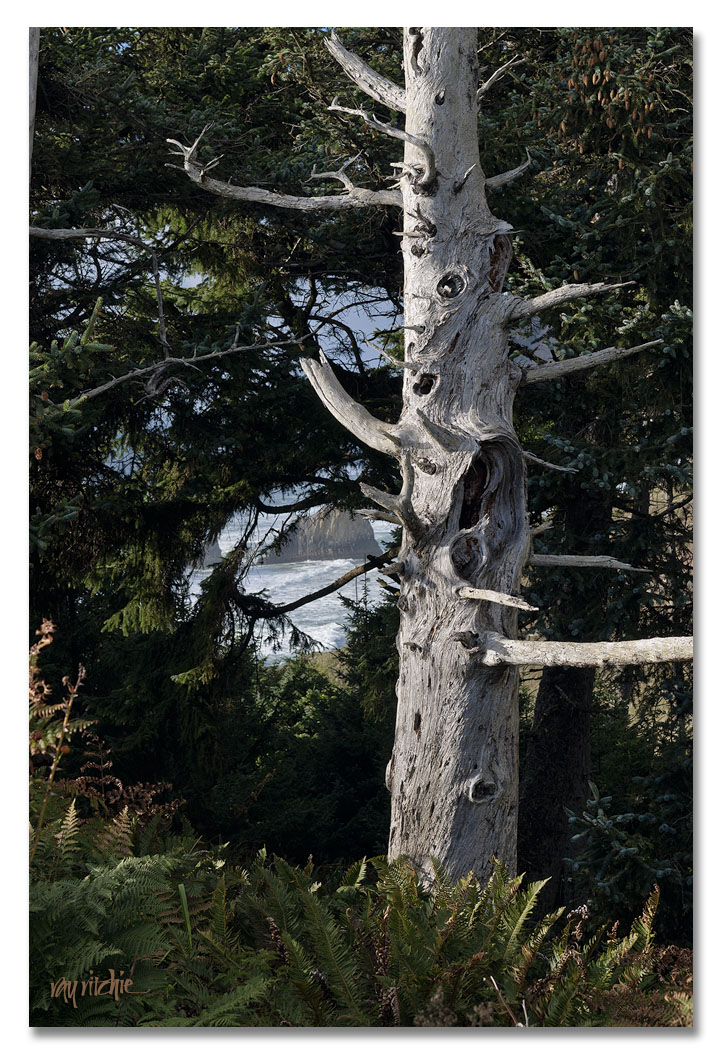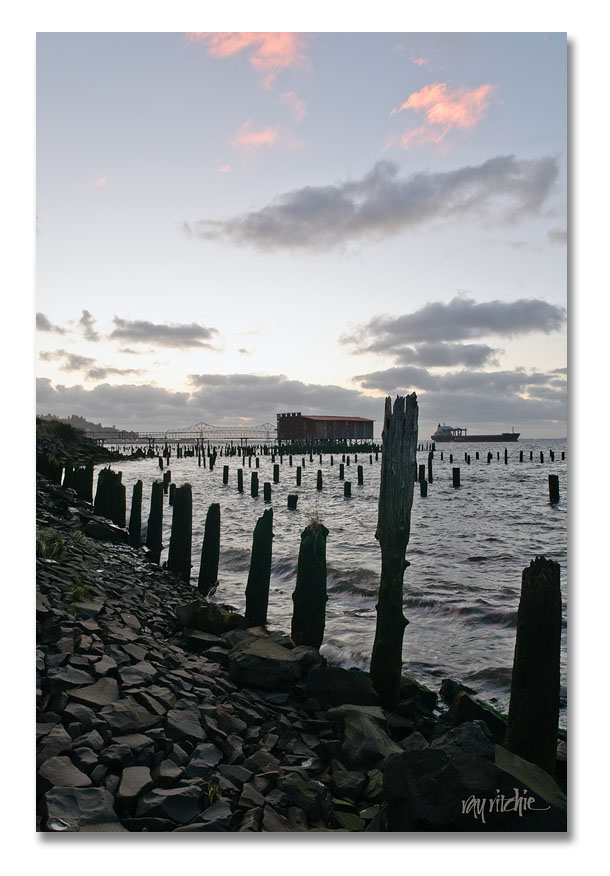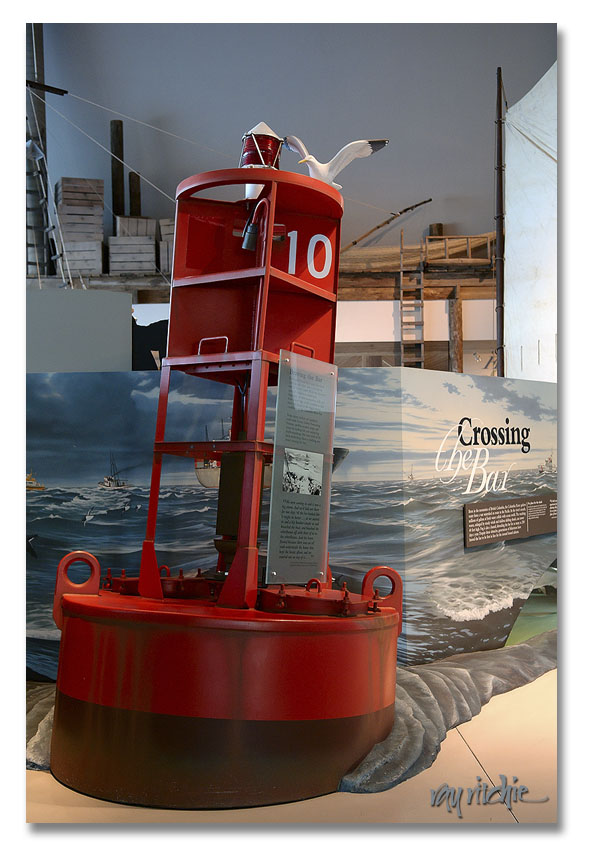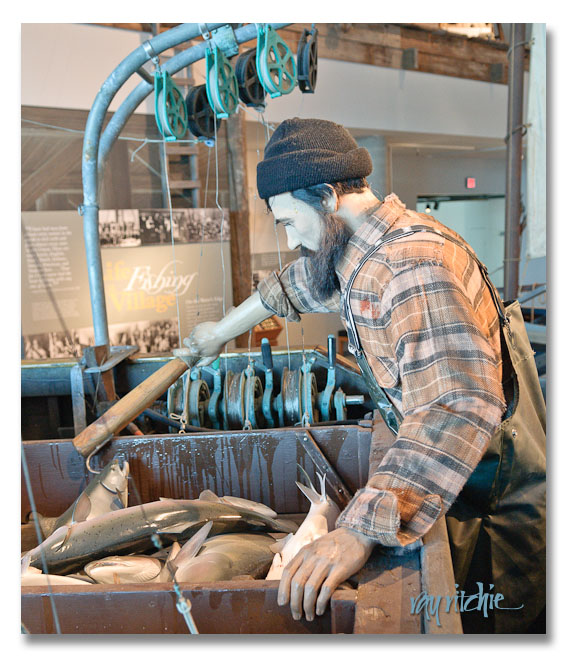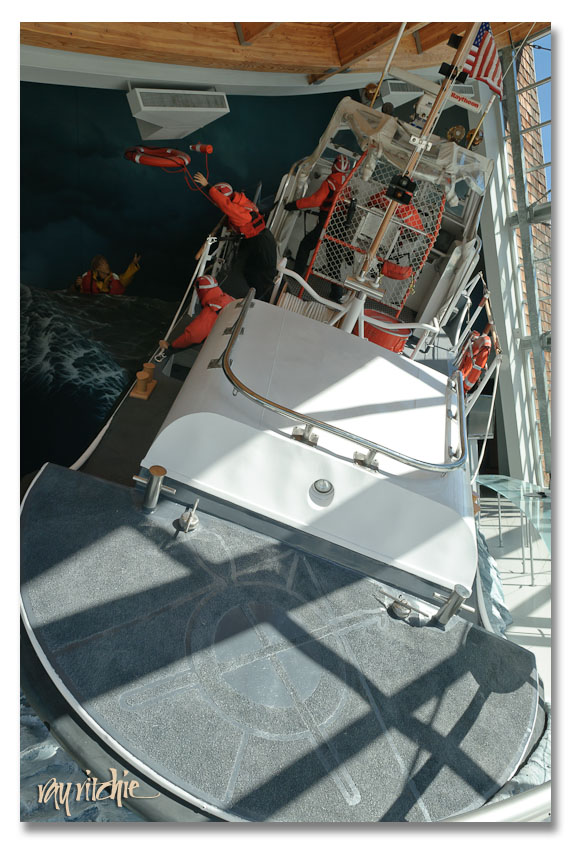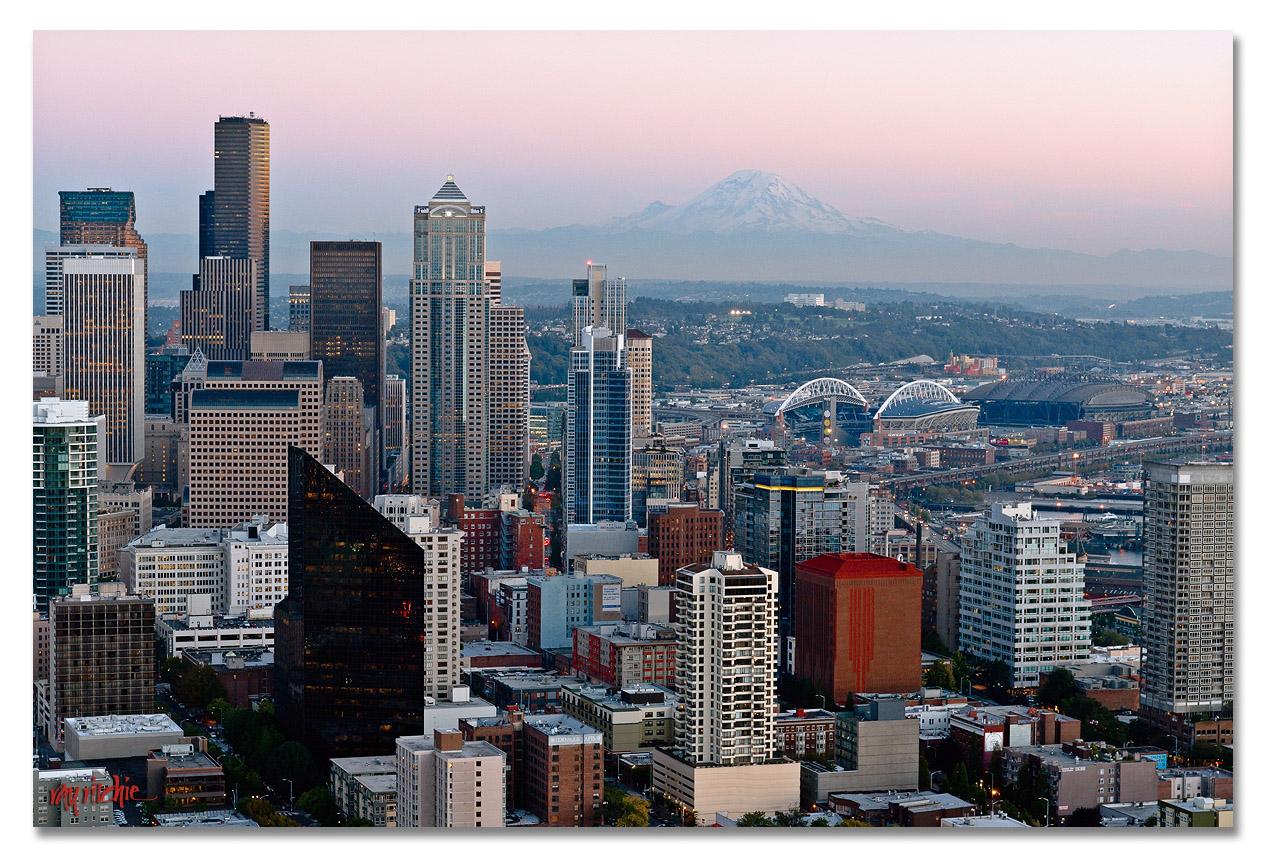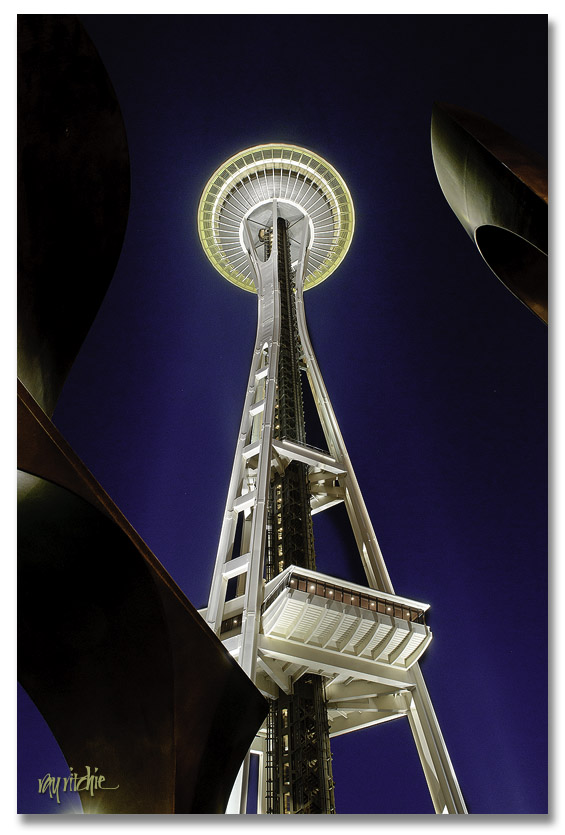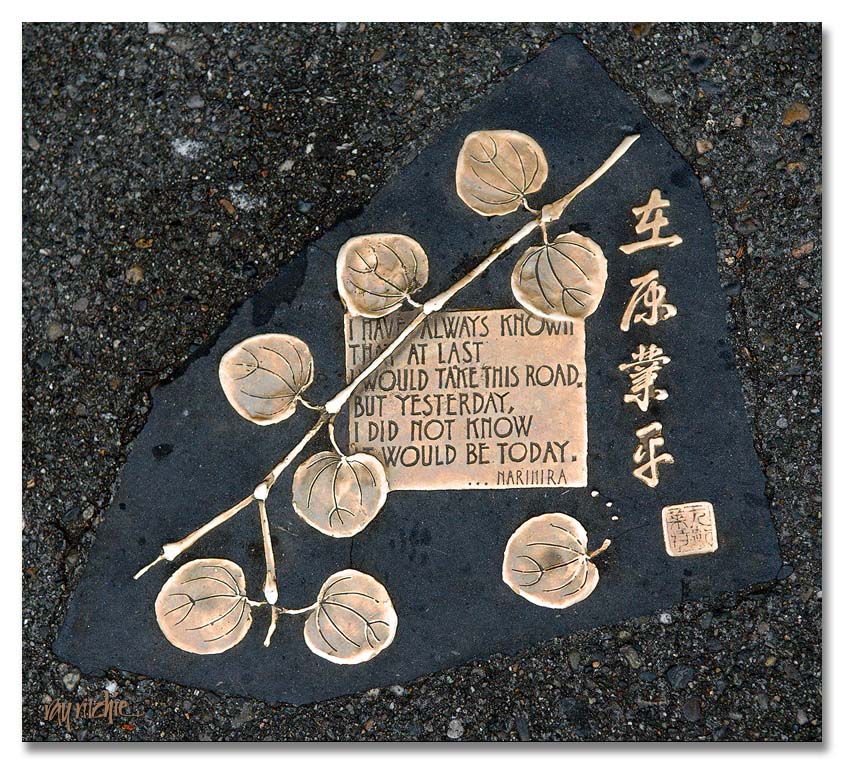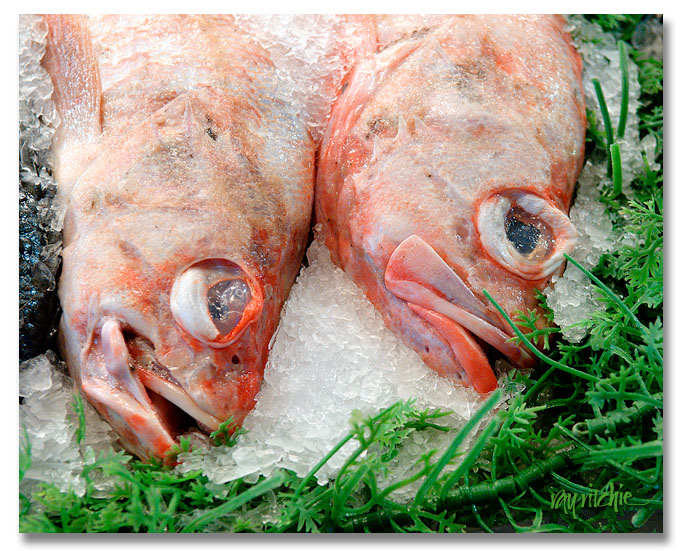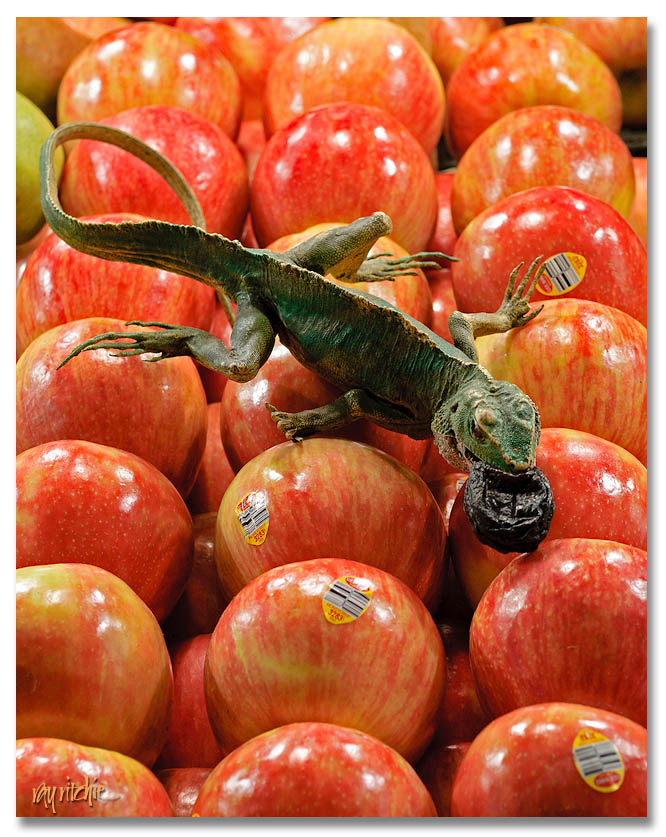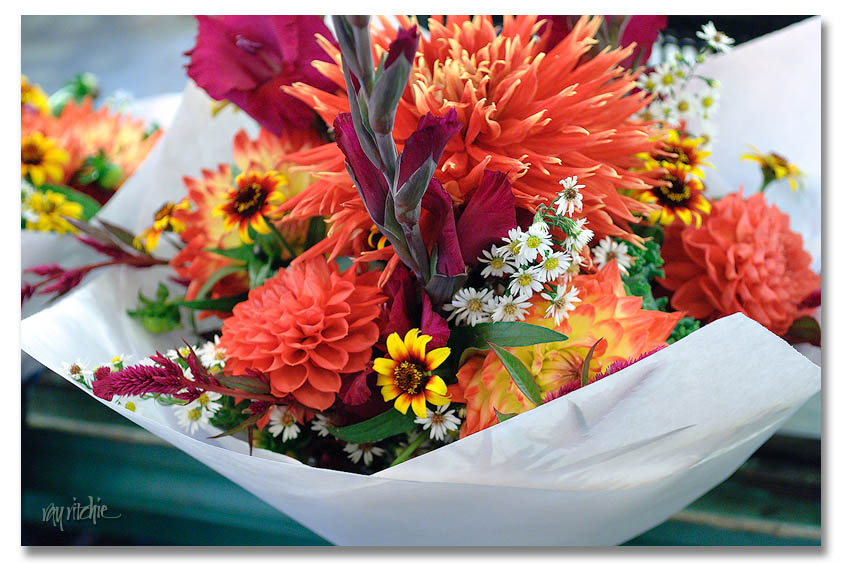Wow – it’s been over a month since my last post! I’ll spare you my weak excuses, and just say that I’ll try not to do that again.
I wanted to wrap up the northwest coast trip photos with just a few more of my favorites. After leaving Newport, we continued north on Highway 101, and began to see impressive examples of the power of ocean, as we approached Boiler Bay. Here’s an example:
As we moved further north, Rte. 101 bent inland, and it began to look as though our incredible luck with the weather was running out. A side trip to Cape Lookout gave us only a view of mist and fog, so we returned to 101 and entered Tillamook County, which our guidebook said has the highest rainfall in Oregon (80-90 inches annually, with some spots as high as 200 inches). Just as we saw the “Welcome to Tillamook County” sign, it began to rain, and we drove through the dairy farming valleys under a steady downpour. We had been advised that we should stop at the Tillamook Cheese factory (“ice cream to die for,” was how my Internet contact put it), and somehow, as we entered the town of Tillamook, the sun came out again. We turned our backs on the Heart Association for a delicious lunch of macaroni and cheese followed by ice cream, and then continued on to Cannon Beach and Ecola State Park. The latter was my favorite spot of the trip, and even though we found ourselves running out of time and energy, after a long drive down a single-lane road, we made our way to Ecola Point, where I also got my favorite shot of the trip (if you click on the image, you’ll be taken to a larger version than I usually post):
I loved that shot for the old tree, the ferns, the redwoods in the background (note the small cones in the upper right), the great light, and especially for the little window through the trees, showing the rocks in the ocean. For me, it was almost a perfect summary of our coastal tour experience. By the way, I have made 12×18 prints of this shot, and it holds up very well to enlargement – if you’re interested in a print, drop me an e-mail (see the contact page link at the top of this page).
We had thought we’d spend the night in Seaside, just on the other side of Ecola State Park, but there was a convention in town that was tying up most of the hotel space, so we decided to go on to Astoria for the night. We found a room right on the banks of the Columbia River, so close to the fishing docks that we were serenaded all night long by barking seals, who apparently like to sleep on the floating gangways where the boats tie up. I watched the sunset over the river, looking out towards one of the few remaining buildings from the hundreds of canneries that operated in Astoria before the salmon were overfished almost to extinction:
And the next morning I was able to see the seals clearly amid the boats:
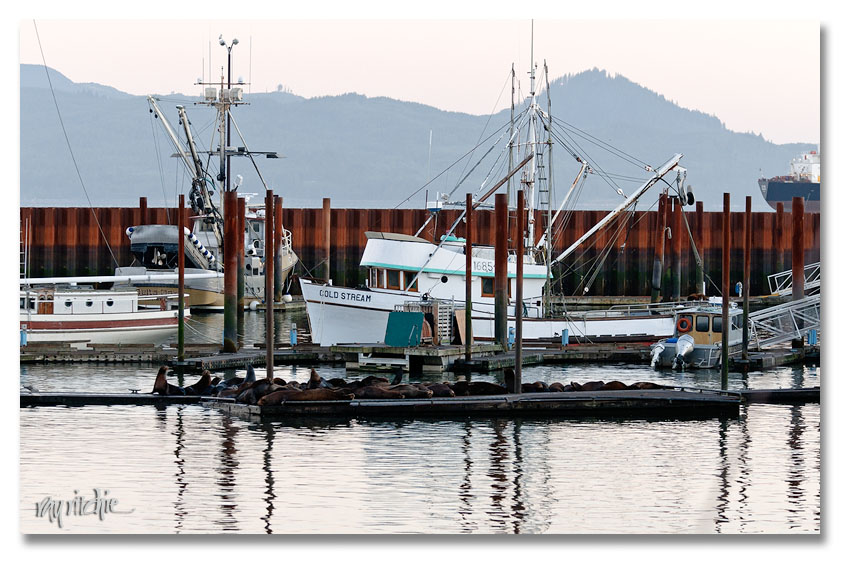 I couldn’t figure out the rules of the seal union. Both late at night and early in the morning, it was clear that most of them were sleeping away like sacks of potatoes, but at least a few were always barking. So maybe they work in shifts? How does a sleeping seal know when it’s time to get up and start barking? Does the seal on barking duty just go over to a sleeping seal and nudge it awake? Do males and females share this obligation equally?
I couldn’t figure out the rules of the seal union. Both late at night and early in the morning, it was clear that most of them were sleeping away like sacks of potatoes, but at least a few were always barking. So maybe they work in shifts? How does a sleeping seal know when it’s time to get up and start barking? Does the seal on barking duty just go over to a sleeping seal and nudge it awake? Do males and females share this obligation equally?
Our AAA guidebook listed Astoria Tower as a “gem,” and compared it to the famous Trajan Column in Rome. Since Trajan’s column is a treasured icon to calligraphers (the inscribed letters on the column are considered the most perfect examples of classic Roman caps), I felt we had to check it out. Calligraphically, it was disappointing, as the letters were nothing to brag about, but the artwork spiraling up the column, which tells the story of the settlement of the Pacific Northwest, was interesting, and from the viewing platform you can see a 360-degree panorama of the Columbia River area:
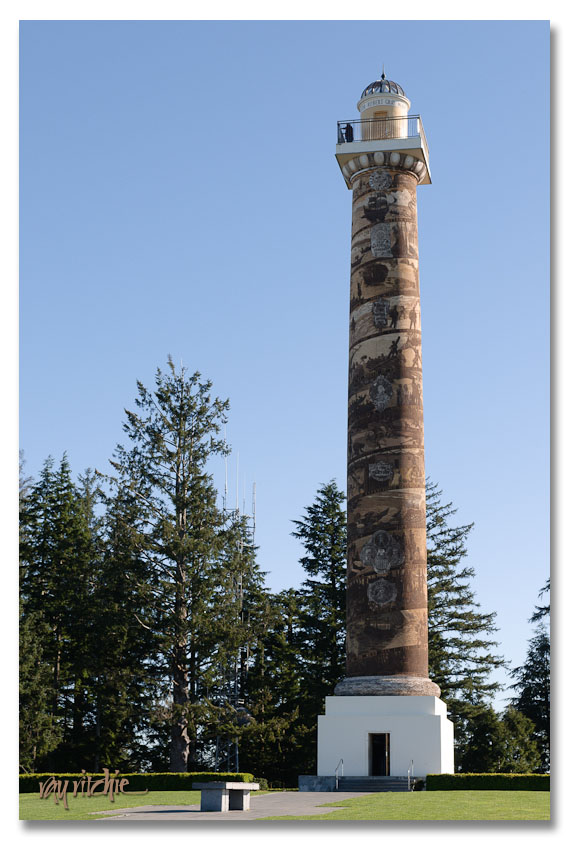 Our favorite spot in Astoria turned out to be the Columbia River Maritime Museum, which I suspect we might never have discovered, had it not been just down the street from our hotel. It’s right on the river, and has real Coast Guard lightship and rescue boats which can be visited, and fascinating videos about the Columbia River Bar pilots (who know the river so well that they can draw a map including every sandbar entirely from memory), showing them boarding the incoming and outgoing freighters by jumping from the pilot boats onto a rope ladder tossed over the side of the ship. The “bar,” we learned, is the area at the mouth of the river where the tides of the Pacific meet the outflow of the river, leading to swells which can be in excess of forty feet. The river is so hazardous in this area that more than 2000 vessels have been lost since record-keeping began. Here are a few shots from the museum:
Our favorite spot in Astoria turned out to be the Columbia River Maritime Museum, which I suspect we might never have discovered, had it not been just down the street from our hotel. It’s right on the river, and has real Coast Guard lightship and rescue boats which can be visited, and fascinating videos about the Columbia River Bar pilots (who know the river so well that they can draw a map including every sandbar entirely from memory), showing them boarding the incoming and outgoing freighters by jumping from the pilot boats onto a rope ladder tossed over the side of the ship. The “bar,” we learned, is the area at the mouth of the river where the tides of the Pacific meet the outflow of the river, leading to swells which can be in excess of forty feet. The river is so hazardous in this area that more than 2000 vessels have been lost since record-keeping began. Here are a few shots from the museum:
If you’re in the Astoria area (and why not, since that’s where “Goonies” was filmed ![]() ), this little museum is well worth your time.
), this little museum is well worth your time.
After our visit to Astoria, we returned to Seattle for our last two nights, and got in a visit to Pioneer Square and a trip to the top of the Space Needle for a sunset view. I’ll end this travelogue with this view of the city (click on the image for an larger version):
It was a great trip – can’t wait to go back.

